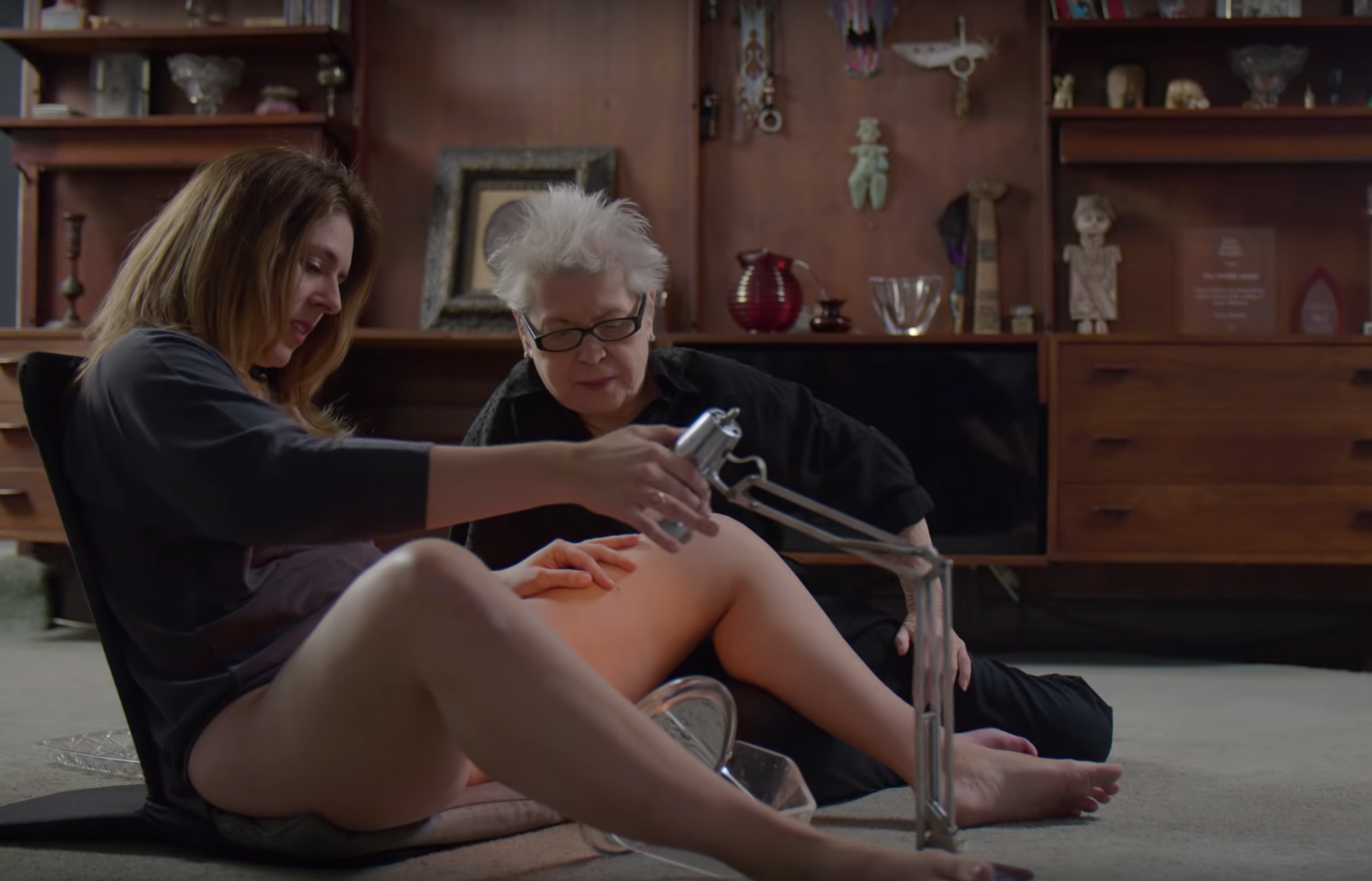Goop’s Horrible Netflix Show Accidentally Makes a Case Against Social Media Censorship

Credit to Author: Jillian C. York| Date: Thu, 13 Feb 2020 13:35:28 +0000
When Gwyneth Paltrow’s The Goop Lab premiered on Netflix last month, the collective eye-roll on social media was palpable.
Goop—Paltrow’s “wellness and lifestyle company”—has been rightly panned by critics over the years for promoting pseudoscientific claims and wellness devices that range from the absurd to the overtly harmful. The Goop Lab is no exception; one Washington Post op-ed called the series “horrible,” while the Guardian gave it 1/5 stars in a review.
Despite this, my curiosity got the best of me one night and I tuned in to watch the most talked-about episode: the one in which Paltrow misidentifies the scope of the vagina, revealing that she’s not particularly informed about the anatomy she so often claims expertise on. The episode, entitled “The Pleasure Is Ours,” is centered on the work of 90 year-old sex educator Betty Dodson, famous for her workshops in which she teaches women how to effectively masturbate to orgasm.
The episode, which comes with a disclaimer, is not quite what I expected. Rather than peddling jade eggs, it sells the viewer on Dodson’s methods (which have, for what it’s worth, been the subject of empirical research). And perhaps most surprisingly, the episode is quite graphic: Dodson’s colleague Carlin Ross demonstrates the technique, her vulva shown on screen as she masturbates, along with several others in a slideshow meant to depict diversity.
What was surprising about this was Netflix’s willingness to show, in close-up detail, a part of the body that is—with precious few exceptions— verboten in Silicon Valley. As I’ve written in the past, social media platforms appear to have taken their cues about morality and governance from other forms of media. Just as the American film industry is “self-regulated” by the notoriously prudish Motion Picture Association of America (MPAA), Facebook’s own policies ban nearly all depictions of the nude human body—regardless of the fact that it’s constitutionally-protected expression.
Facebook and its properties, such as Instagram, have a propensity to go overboard when enforcing these policies. Take, for example, The Vulva Gallery—like the sex episode of Goop Lab, the Instagram account seeks to normalize the vulva by posting illustrated images based on user-submitted photos. Illustrations are permitted by Instagram’s Community Standards, but that didn’t prevent the account from getting banned at one point—no doubt a mis-application of the rules, an unfortunately uncommon phenomenon.
In fact, the over-banning of sexual content is so common that there are numerous articles highlighting accounts that seek to challenge and circumvent the rules. While social media platforms often claim that bans on nudity are meant to protect users from porn and non-consensual exploitative imagery (often called “revenge porn”), we should be questioning the harms that this black-and-white approach to nudity and human sexuality is causing to our society—and to women in particular.
As The Goop Lab episode makes clear, many women (including Paltrow) don’t know a whole lot about their own anatomy. In most societies, we’re taught that our nether regions are something shameful, to keep covered up, at least until we’re wed. While I clearly remember a high school sex ed demonstration that involved putting a condom on a banana, I can’t recall seeing any images of women’s nude bodies. Many women report seeing another vulva for the first time in mainstream porn, where only certain body types (and hair removal practices) are commonly shown.
That’s what makes this episode so important—and one of the reasons the pervasive social media ban on depictions of the human body is so damaging. But it’s not the only reason; platform bans on the human body disproportionately affect women. Facebook’s community guidelines, for example, allow depictions of topless men but ban women from appearing shirtless. Not only does this discriminatory practice reinforce damaging ideas about the female body as inherently sexual, it’s also rooted in an outdated binary perception of gender.
No one has illustrated the latter point better than Courtney Demone, a trans woman who challenged Instagram’s rules by posting topless photos of herself as she transitioned a few years ago and documented the process for Mashable. Demone’s piece draws parallels between the street harassment she was subject to as her appearance became more traditionally feminine and the loss of the privilege to be topless that she experiences, which she describes as a “clear example of the sexism that comes with living in a female body”.
Interestingly, as executive producer Shauna Minoprio told the LA Times, Goop execs chose to shoot the masturbation scene without asking permission—not unlike the many women who regularly challenge social media’s prudish rules by posting their nudes anyway.
In sexist Silicon Valley, that may just be the only way to move the needle forward.
This article originally appeared on VICE US.